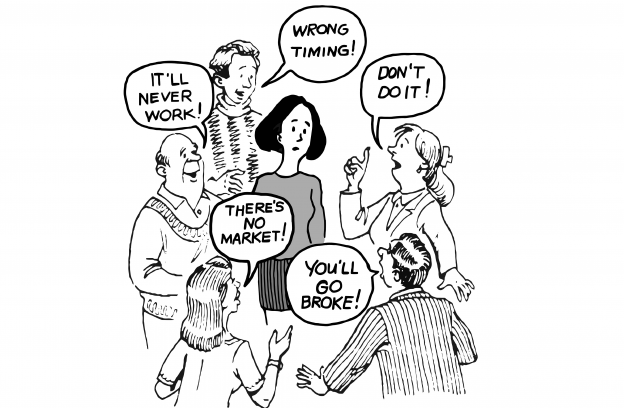Taking initiative over your finances can sometimes be a confusing endeavor. After all, it seems like everyone has their own twist on personal financial advice.
How can you know which pundit is giving the best advice? Should you pay off debt, invest in the stock market, or apply for a credit card in efforts to build positive credit?
We’ll walk you through some common pieces of advice you can probably forego — for your own good.
Everyone should invest in stocks
With the emergence of apps that allow people to buy stocks without paying commissions, consumers have become empowered to buy stocks by performing a few taps on their mobile device.
Is the stock market a good investment for you? Most people will tell you that the stock market is a terrific investment for those who wish to nest away their cash. T
Investing in stocks is not a bad way to increase your wealth. However, if you are young, the best investment you can make is in yourself.
It is a best practice to begin investing in the stock market once you have achieved a predictable paycheck, built up an emergency fund, and eliminated all of your debt. Until then, it’s best to invest in yourself and your personal skill sets if you are wanting to make money fast.
Build credit with credit cards
If you’re someone who wants to build credit, conventional wisdom says that you should get a credit card. The downfalls of signing up for revolving credit lines are:
- Annual fees
- High interest rates
- Temptation to spend beyond your means
While credit cards can help your credit score, there’s a less risky method of establishing good credit. Simply call your bank and see if they will let you sign up for a secured personal loan.
In this scenario, you could use your savings account as collateral for your personal loan. If you compare the interest rates between these two types of loans, you’ll find that a secured loan will have an interest rate that is a fraction of what it will cost to get a credit card.
You also won’t have to pay annual fees and, since the loan is backed by your savings account, it’s impossible to default on it.
Paying off debt is top priority
The answer: It depends. Sometimes, people are left with no choice but to rack up debt on their credit cards. Life happens. Shouldn’t consumers pay off their debts as soon as possible in order to keep their creditors happy?
Most of the time, the answer is yes. But, it is important to look at the type of debt, how long you have to pay it off, and the exact interest rate of these debts.
If you do not have a cash emergency fund, a savings account with at least 3 months of bills should be on standby in case your stream of income is interrupted.
Some experts suggest that you should save up 6 months of expenses as an emergency fund.
If you already have an emergency fund, perhaps then you should focus on paying off debt. Before you commit to paying it all off, research which offers are available to help you get the best interest rates on your debt.
Buying is always better than renting
You’ll probably notice a running theme with the pieces of advice in this article. They’re blanket statements that don’t take individual financial standing into account.
The same goes for the old trope “buying is better than renting.” Many people believe this because they view rent as a waste of money. Rather than paying that to your landlord, why not use it toward a mortgage and build equity in your home?
This ignores three very important considerations:
- Buying a home still requires a down payment, which many people don’t have enough for.
- In many places, rent prices are still far lower than your mortgage would be.
- Renting provides flexibility for people who move often, don’t have stable work, etc.
Furthermore, when you buy, you become responsible for the cost of your own repairs, utilities, property tax, and home insurance. These can add up to far more than renting.
Sure, buying a home is a great long-term investment, but not everyone is in that place in their lives. The same goes for a car. The higher down payments are not always conducive to everyone’s limited budget.
These pieces of financial advice are not innately bad, they’re simply misguided. They’re often delivered as generalities: “always” or “never.” Based on your age, geographical location, and financial situation, what works for others may not work for you.

